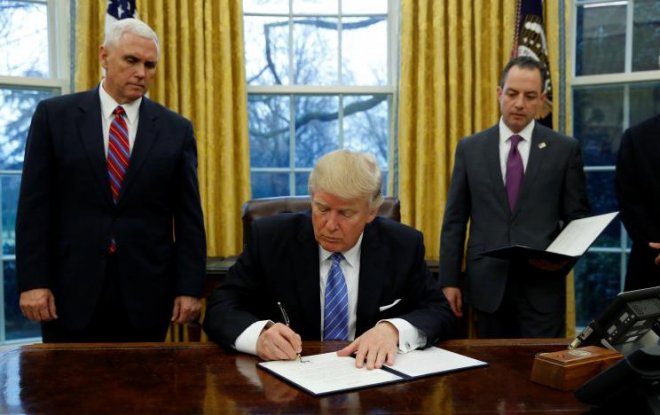
With the new president taking over the White House, a landscape-changing fallout between China and US seems inevitable. Donald Trump's administration said on Monday that it will not let China take over the South China Sea at any cost. China, on the other hand, seems far from being intimidated and responded saying that it would require Washington to "wage war."
"The U.S. is going to make sure that we protect our interests there... It's a question of if those islands are in fact in international waters and not part of China proper, then yeah, we're going to make sure that we defend international territories from being taken over by one country," said White House spokesman Sean Spicer, according to Reuters.
Rex Tillerson, who is Trump's secretary of state nominee, said on 11 January that China should not be allowed access to islands it has built in the contested South China Sea, to which the Asian giant responded with the battle cry.
Also read: China warns Taiwan of grim future if One-China policy is undermined
"We're going to have to send China a clear signal that, first, the island-building stops and, second, your access to those islands also is not going to be allowed," said Tillerson, when he was asked if the new government he supported a more aggressive approach towards China's monopoly over the disputed waters. However, he did not clarify on how the US will deny China's access to the islands.
China and the US are already at loggerheads with each other after Trump said "everything is under negotiation including One China (policy)," in an interview with the Wall Street Journal on 13 January. Since then China has been unsure if Washington is shifting its stance towards Taiwan.
Also read: Beijing stresses on One China Policy after Trump calls it 'negotiable'
Military experts said if both these superpowers stay armed to teeth against each other, a dangerous escalation is certain. Moreover, Reuters reported that aides have said that Trump is planning a major naval build-up in East Asia to challenge China's dominance in the area.
Washington-based South China Sea expert Mira Rapp-Hooper at the Center for a New American Security said, as reported by Reuters: "The Trump administration has begun to draw red lines in Asia that they will almost certainly not be able to uphold, but they may nonetheless be very destabilizing to the relationship with China, invite crises, and convince the rest of the world that the United States is an unreliable partner."
"The South China Sea is definitely a flashpoint because it is the area where we might find US aircraft and warships actually clashing with Chinese aircraft and warships and the possibility of an unintended shoot down of an aircraft or sinking of a ship I think is quite high," Peter Jennings of the Australian Strategic Policy Institute said, according to ABC News.
Military observers the world over are seriously talking about a war between the two super powers. Though no one says a pre-meditated war between China and the US is a possibility, there is a great risk of a crisis being mishandled, leading to military escalation.
"The whole situation is quite combustible. I'm not going to say yes or no but the war is likely a self-fulfilling prophecy. If at this current stage the Trump administration will continue to push China into a confrontation, I think war is likely," Sow Keat Tok, a China expert from Melbourne University told ABC.









